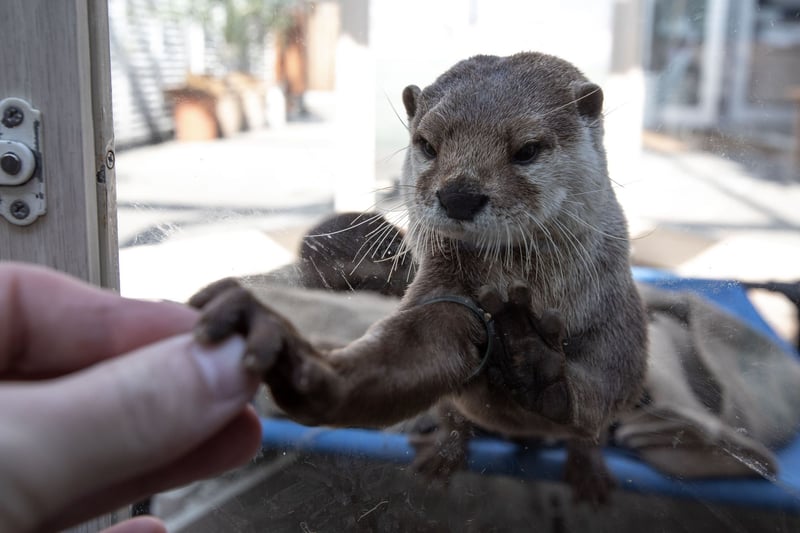
Otter smuggling fuelled by Japanese craze for cute animals
Press release
There’s a dramatic and troubling surge in exotic pets across Southeast Asia and the latest “otter craze” is being fueled by social media influencers and interactive otter cafes in Japan, which is driving the cruel demand to keep otters as pets.
An undercover investigation by World Animal Protection revealed the illegal hunting, trafficking, and increased attempts to captive breed otters across Japan, Thailand and Indonesia to satisfy a growing international demand for the animal. The investigation also raises the following concerns:
Otter cubs are snatched from their parents in the wild. Their parents who are fiercely protective are shot, electrocuted or their nests are smoked out, so poachers can take their cubs
Three out of four otters found in Southeast Asia, including the Asian small-clawed otter, are considered to be at risk of extinction in the wild by the International Union for Conservation of Nature and Natural Resources (IUCN)
An organised network of farmers, hunters, collectors, dealers and exporters source otter cubs from the wild and export them through their networks
Evidence of laundering through captive breeding facilities, in at least one location. Further sources have indicated similar efforts elsewhere
Reported incidents of suggested involvement of law enforcement and government officials in facilitating the cruel trade. One report from Indonesia stated that a government worker requested operations on otters to remove the gland that causes them to smell, to make them more appealing as pets.
In Japan, where more than a dozen animal cafes feature otters, it was found that the wild animal’s welfare is severely compromised for the entertainment of customers. The otters are sadly heard whimpering, shrieking and making distress calls while customers are interacting with them.
Some are kept in solitary conditions with no natural light, others are seen biting their claws and exhibiting traumatized behavior - some of the worst housing conditions included small cages with no access to water.
With long, sleek, streamlined bodies and webbed feet, otters are born swimmers. They are found in waterways and often seen floating on their backs, pat stones into the air, catching them and rolling them skillfully around their chests and necks. Otters are most charismatic, highly social and live in large family groups of up to 20 individuals. A far cry from their captive existence as pets.
Cassandra Koenen, Global Head of Wildlife not Pets says:
“Just because a wild animal is cute, it does not mean you should take it home with you. Unfortunately, this fact appears to be lost on many people as they are influenced by social media, and influencers showing them off as fun and cool pets.
“Once otters are in people’s homes, there is no realistic way to replicate the space and freedom these animals would have in the wild. Many animals are kept in spaces vastly smaller than their natural habitats and they don’t have the correct nutrition, even if owners have their best intentions to feed them properly.”
Evidence from the charity also suggests complicity on behalf of law enforcement and government agencies in facilitating the trade. With otters being assessed as “risk of extinction in the wild,” urgent attention is needed to address illegal trade concerns and fraudulent captive breeding operations in Southeast Asia.
World Animal Protection is also urging people to not buy, own or breed a wild animal as a pet. A life in captivity is a world away from a life in the wild. Wild animals are not pets, they belong in the wild. Join the movement to help end the cruel exotic pet trade.
-END-
Notes to editors
For an interview with a spokesperson contact Kai Akram at kaiakram@worldanimalprotection.org
Read the full report here.
Undercover b-roll footage and images available here.
Cassandra Koenen, Global Head of Wildlife not Pets says: “Just because a wild animal is cute, it does not mean you should take it home with you. Unfortunately, this fact appears to be lost on many people as they are influenced by social media, and influencers showing them off as fun and cool pets. “Once otters are in people’s homes, there is no realistic way to replicate the space and freedom these animals would have in the wild. Many animals are kept in spaces vastly smaller than their